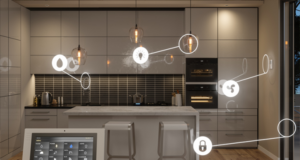

Sydneysiders, we’ve all been there – a burst pipe flooding your bathroom at the crack of dawn or a blocked drain causing chaos in your kitchen. When plumbing problems strike, they can be downright inconvenient and costly. That’s where a reliable emergency plumber in Sydney comes to the rescue.
However, instead of waiting for a plumbing disaster to occur, it’s wise to be proactive and prevent these emergencies from happening in the first place. In this guide, we’ll walk you through some valuable tips to keep your plumbing in tip-top shape, ensuring you won’t have to scramble for an affordable emergency plumbing service anytime soon.
Regular plumbing maintenance
Why is regular plumbing maintenance important?
Regular plumbing maintenance is like a health checkup for your home’s vital systems. It’s the key to preventing potential disasters and costly repairs down the line. Think of it as giving your plumbing a long, happy life.
What does regular plumbing maintenance involve?
Routine plumbing maintenance includes inspecting, cleaning, and servicing your plumbing fixtures and systems. It encompasses tasks like checking for leaks, clearing clogs, and ensuring your water heater is functioning efficiently.
How often should you have your plumbing system inspected and serviced?
For most homes in Sydney, an annual plumbing checkup should suffice. However, if you live in an older property or an area prone to extreme weather, consider scheduling maintenance more frequently – every six months, for instance.
How to find a qualified plumber for regular plumbing maintenance
Finding a reliable plumber in Sydney is crucial for ensuring your plumbing stays problem-free. Seek recommendations from friends, family, or neighbours, and always verify the plumber’s qualifications and licensing.
Be aware of the signs of plumbing problems
Common signs of plumbing problems
- Dripping Faucets: That incessant dripping faucets not only wastes water but can also indicate underlying issues such as worn-out washers or valves.
- Slow Drains: If your sinks or showers are draining sluggishly, it’s a telltale sign of a potential clog.
- Water Stains: Dark patches on your walls or ceilings may signify a hidden leak.
- Unpleasant Odours: Foul smells emanating from drains could indicate sewage or drainage issues.
What to do if you notice any signs of a plumbing problem
Don’t procrastinate when you spot these signs. Addressing emergency plumbing issues promptly can save you from major headaches later on. If you’re comfortable with DIY fixes, tackle minor problems yourself. However, if it’s beyond your DIY skills, it’s time to call in a professional plumber.
Fix minor plumbing problems immediately
Why is it important to fix minor plumbing problems immediately?
Minor plumbing problems have a sneaky way of turning into major headaches if ignored. A small leak can lead to extensive water damage or mould growth, and a minor clog can escalate into a complete blockage.
How to fix common minor plumbing problems yourself
For DIY enthusiasts, some minor plumbing problems are easily solvable. Tools like plungers, drain snakes, and pipe wrenches can be your best friends in such situations. Just remember to proceed with caution and know your limits.
When to call a plumber to fix a minor plumbing problem
If your DIY efforts aren’t yielding results or if you’re unsure about the issue, don’t hesitate to contact an experienced plumber. They can quickly identify and fix the problem, preventing it from getting worse.
Take steps to protect your plumbing system from extreme weather events
Extreme weather conditions can wreak havoc on your plumbing system. Sydney is no stranger to weather extremes, so it’s essential to be prepared.
- Floods: Invest in flood-resistant barriers or sandbags to divert water away from your home. Ensure your basement is adequately waterproofed, and consider installing a sump pump for added protection.
- Storms: Trim tree branches near your house to prevent them from falling and damaging your pipes during a storm. Make sure your gutters and downspouts are clear to avoid water buildup.
- Bushfires: Install ember guards on your roof and in your gutters to prevent embers from igniting debris. Keep a hose and firefighting equipment accessible and ensure your water supply is uninterrupted.
Conclusion
Preventing unexpected plumbing emergencies in your Sydney home requires vigilance and proactive maintenance, along with access to affordable emergency plumbing services. By staying alert to the signs of potential plumbing issues, promptly addressing minor problems, and safeguarding your plumbing system from extreme weather events, you can spare yourself the inconvenience and financial burden of an unforeseen crisis. Don’t postpone taking action until the next plumbing disaster strikes; act today. Your plumbing will appreciate it, and your wallet will too.


